H.R. 1520: Charlotte Woodward Organ Transplant Discrimination Prevention Act
The bill referred to as the Charlotte Woodward Organ Transplant Discrimination Prevention Act aims to prohibit discrimination against individuals with mental or physical disabilities in the context of organ transplants. Here is a summary of the key provisions and definitions included in the bill:
Definitions
The bill defines several key terms relevant to its provisions:
- Auxiliary aids and services: Tools and services that assist individuals with disabilities, in accordance with the Americans with Disabilities Act.
- Covered entity: Any licensed health care provider or transplant hospital that engages in interstate commerce or provides health care that affects interstate commerce.
- Disability: As defined by the Americans with Disabilities Act.
- Human organ: Any human organ as defined in the National Organ Transplant Act.
- Organ transplant: The process of transplanting a donated human organ into another person's body for treatment.
- Qualified individual: An individual who meets the eligibility requirements for receiving a human organ, with or without a support network.
- Reasonable modifications: Changes to policies or practices to accommodate qualified individuals.
- Support network: Individuals chosen by the qualified individual to provide guidance and assistance regarding their health decisions.
Prohibitions on Discrimination
The bill establishes several prohibitions against discrimination by covered entities:
- Covered entities cannot determine a qualified individual’s ineligibility for an organ transplant solely based on their disability.
- They cannot deny an individual an organ transplant or related services based solely on their disability.
- They cannot refuse to refer the individual to a transplant center or place them on a transplant waiting list based on their disability.
Exceptions and Considerations
While the bill prohibits discrimination based on disability, it allows for certain exceptions:
- If a disability is deemed medically significant after an individualized evaluation by a physician, it may be considered in making health recommendations or decisions.
- The inability of a qualified individual to independently comply with health requirements following a transplant is not considered medically significant if they have a support network to assist them.
Reasonable Modifications
Covered entities are required to make reasonable modifications to their policies and practices to accommodate qualified individuals with disabilities, unless doing so would fundamentally alter the nature of the services offered.
Protection Against Denial of Services
The bill requires that qualified individuals are not denied organ transplant procedures due to the absence of auxiliary aids and services unless it would fundamentally alter the procedure or impose an undue burden on the entity.
Compliance and Enforcement
Individuals who believe they have been subjected to discrimination may file a claim with the Office for Civil Rights at the Department of Health and Human Services for resolution. This does not limit their rights under the Americans with Disabilities Act or other applicable laws.
Application Across the Process
The provisions in the bill apply not only to organ transplants but also to the evaluation process and related services for qualified individuals.
Interaction with Other Laws
The bill does not supersede any state or local laws that provide greater rights to individuals with disabilities regarding organ transplants than those specified in this act.
Relevant Companies
- None found
This is an AI-generated summary of the bill text. There may be mistakes.
Sponsors
29 bill sponsors
-
TrackKat Cammack
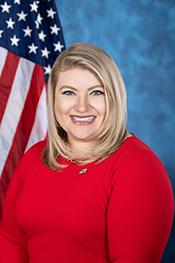
Sponsor
-
TrackDon Bacon

Co-Sponsor
-
TrackNanette Diaz Barragán

Co-Sponsor
-
TrackStephanie I. Bice
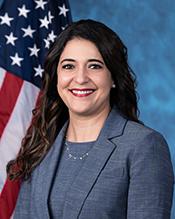
Co-Sponsor
-
TrackSteve Cohen

Co-Sponsor
-
TrackGerald E. Connolly
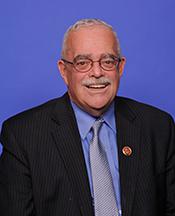
Co-Sponsor
-
TrackAngie Craig

Co-Sponsor
-
TrackDonald G. Davis

Co-Sponsor
-
TrackDebbie Dingell

Co-Sponsor
-
TrackBrian K. Fitzpatrick

Co-Sponsor
-
TrackAndrew R. Garbarino

Co-Sponsor
-
TrackJosh Gottheimer

Co-Sponsor
-
TrackJosh Harder

Co-Sponsor
-
TrackDiana Harshbarger

Co-Sponsor
-
TrackAshley Hinson

Co-Sponsor
-
TrackDarrell Issa

Co-Sponsor
-
TrackSeth Magaziner

Co-Sponsor
-
TrackCeleste Maloy

Co-Sponsor
-
TrackMary E. Miller
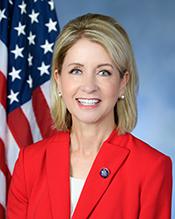
Co-Sponsor
-
TrackMariannette Miller-Meeks

Co-Sponsor
-
TrackSeth Moulton
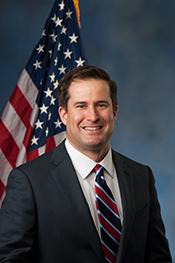
Co-Sponsor
-
TrackEleanor Holmes Norton

Co-Sponsor
-
TrackJohn H. Rutherford

Co-Sponsor
-
TrackPete Sessions

Co-Sponsor
-
TrackPete Stauber
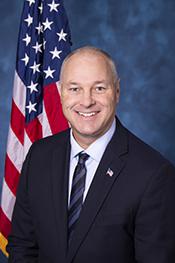
Co-Sponsor
-
TrackClaudia Tenney

Co-Sponsor
-
TrackPaul Tonko

Co-Sponsor
-
TrackDebbie Wasserman Schultz

Co-Sponsor
-
TrackRobert J. Wittman

Co-Sponsor
Actions
6 actions
| Date | Action |
|---|---|
| Jun. 12, 2025 | Placed on the Union Calendar, Calendar No. 126. |
| Jun. 12, 2025 | Reported by the Committee on Energy and Commerce. H. Rept. 119-159. |
| Apr. 29, 2025 | Committee Consideration and Mark-up Session Held |
| Apr. 29, 2025 | Ordered to be Reported by the Yeas and Nays: 46 - 1. |
| Feb. 24, 2025 | Introduced in House |
| Feb. 24, 2025 | Referred to the House Committee on Energy and Commerce. |
Corporate Lobbying
0 companies lobbying
None found.
* Note that there can be significant delays in lobbying disclosures, and our data may be incomplete.
Potentially Relevant Congressional Stock Trades
No relevant congressional stock trades found.